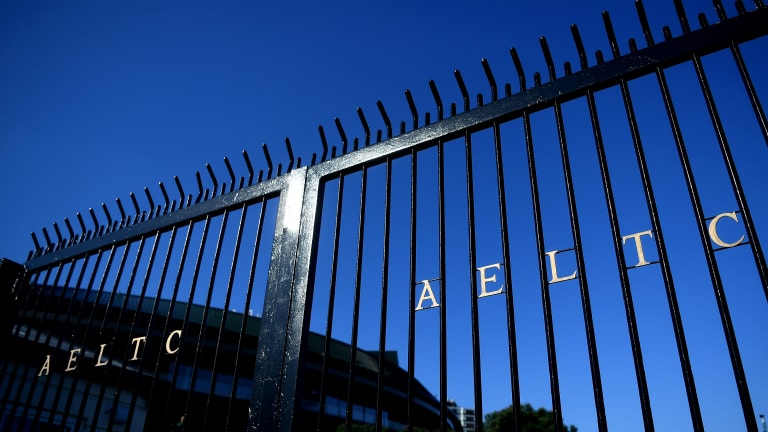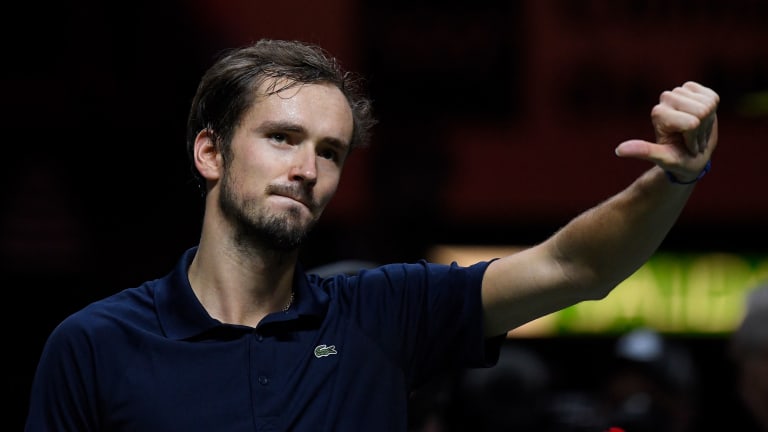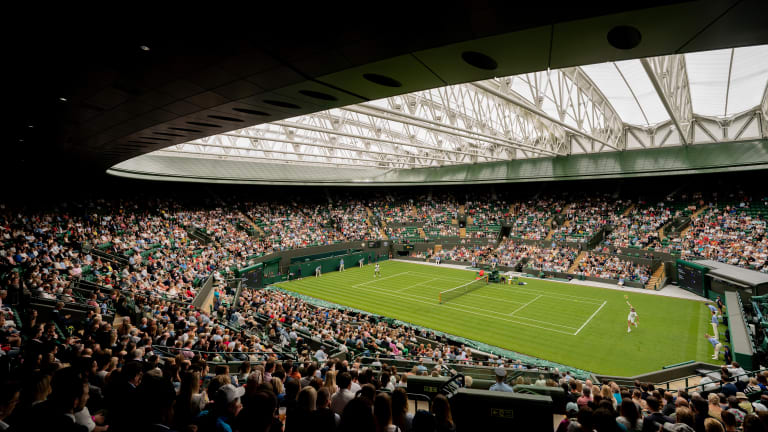The Rally: How should the tours answer Wimbledon’s ban of Russian and Belarusian players? Should a boycott be on the table?
By Apr 20, 2022Wimbledon to replace line judges with electronic line calling from 2025
By Oct 09, 2024The amazing journey of Henry Patten from IBM data logger to Wimbledon doubles champion
By Jul 16, 2024Hsieh Su-Wei, Jan Zielinski win mixed doubles title at Wimbledon
By Jul 15, 2024Why Wimbledon Endures
By Jul 15, 2024Novak Djokovic seeks 2024 answers for Alcaraz and Sinner after great effort: 4 ATP Wimbledon takeaways
By Jul 14, 2024Carlos Alcaraz is a champion establishing how high he will climb with latest Wimbledon title
By Jul 14, 2024Nicolai Budkov Kjaer makes history in winning junior boys' Wimbledon title; Renata Jamrichova wins girls' title
By Jul 14, 2024Carlos Alcaraz beats Novak Djokovic again in Wimbledon final for fourth Grand Slam title
By Jul 14, 2024For Jasmine Paolini, Barbora Krejcikova was one forehand and one serve too good in the Wimbledon final
By Jul 13, 2024The Rally: How should the tours answer Wimbledon’s ban of Russian and Belarusian players? Should a boycott be on the table?
Published Apr 20, 2022
Advertising
Advertising

In its statement on Wednesday, the All England Lawn Tennis Club said "it is our responsibility to play our part in the widespread efforts of Government, industry, sporting and creative institutions to limit Russia’s global influence through the strongest means possible."
© Getty Images
Advertising
Advertising

Daniil Medvedev, who has spent time at No. 1 this year, will be the most notable player affected by the decision.
© AFP via Getty Images
Advertising

Will other players join their Russian and Belarusian counterparts in not playing Wimbledon—by boycotting the tournament?
© FREE FOR EDITORIAL USE. This image is offered licence free for editorial use only by the AELTC. It can be published on all platforms and can be archived. Copyright of All England Lawn Tennis Club. Commercial use is prohibited. ©AELTC/Ben Queenborough